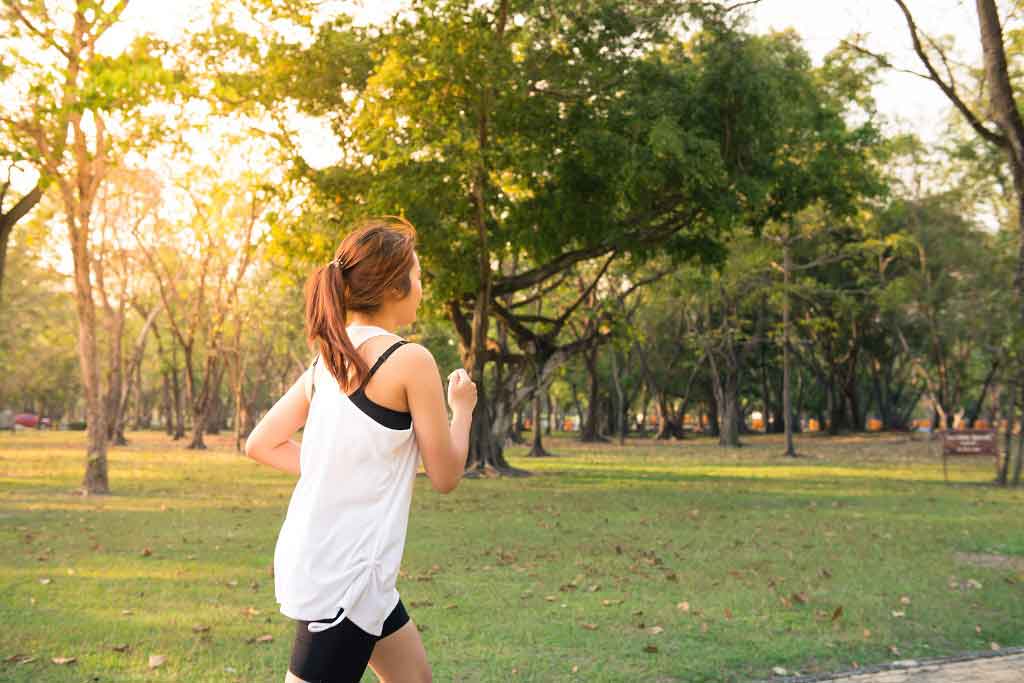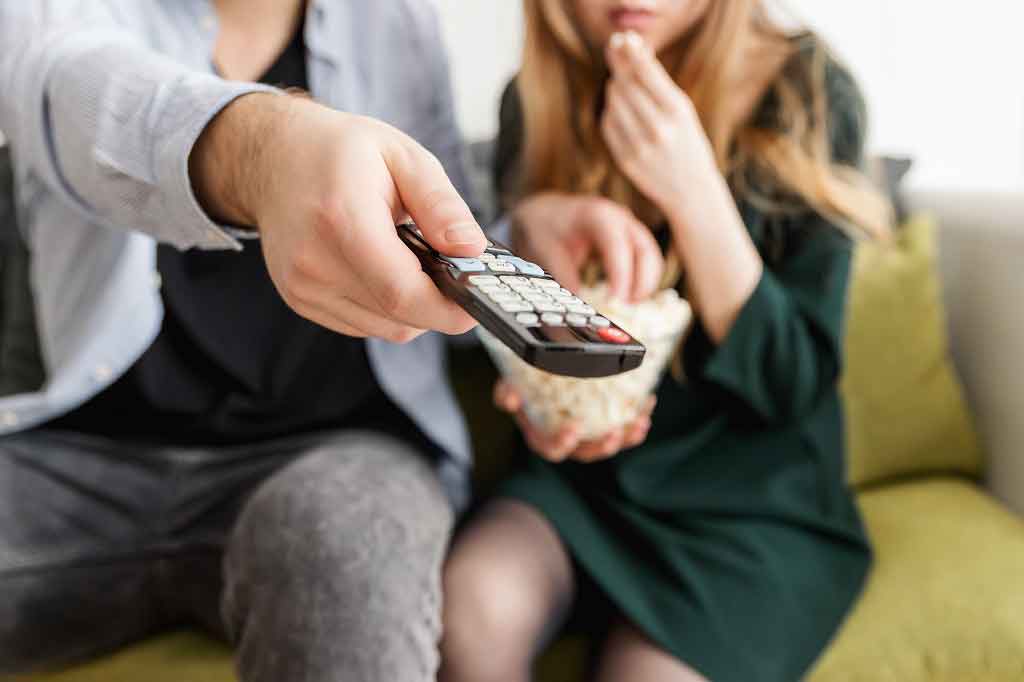Can a lack of sleep make you crave junk food?
Lifestyle and exercise

'Having even one night without sleep leads people to view junk food more favourably, research suggests' The Guardian reports
"Even one night without sleep leads people to view junk food more favourably, research suggests," The Guardian reports.
A small study wanted to find out if not sleeping enough made people hungrier and more likely to eat junk food compared with people who slept normally.
The researchers carried out a series of tests on 32 healthy volunteers who were either allowed to sleep normally or made to stay awake all night.
The researchers then used brain scans to look at areas of the brain associated with appetite and cravings.
They also carried out what's known as an auction task, where the volunteers had the option of bidding a small amount of euros on either a series of high-calorie snacks or household items.
The results suggest that when sleep deprived, the volunteers had brain signals associated with appetite. They were also more likely to choose to bid higher amounts on snacks.
Sleep-deprived participants also had higher levels of a hormone known to control hunger. Both sleep-deprived and non-sleep-deprived groups reported similar levels of hunger in the morning.
This study adds to the growing body of evidence showing a link between poor sleep and weight gain.
But there are many other factors besides sleep that can affect weight. And the small size of the study suggests the results may not be reliable.
If you're concerned about your sleep, or would like tips on how to improve it, find out how to get to sleep.
Where did the story come from?
The study was carried out by researchers from 3 German Universities, the University of Birmingham in the UK, and 2 neurological research centres also in Germany.
It was funded by a German research organisation called Deutsche Forschungsgemeinschaft.
The study was published in the peer-reviewed Journal of Neuroscience.
Coverage of the study by The Guardian and the Mail Online was broadly accurate.
But the Mail's reporting could have benefited from highlighting the study's small sample size, which means the results may not be representative of larger populations.
What kind of research was this?
This experimental study involved male participants undergoing a series of tests related to diet, sleep and brain activity.
In these kinds of studies, researchers try to create artificial study environments, in this case testing specific diet and sleep plans in controlled conditions.
This study doesn't have a control group, however, which means it isn't a randomised controlled trial.
Randomised controlled trials (RCTs) are the best kind of experimental study as they're less susceptible to confounding.
It could be the case that for this study, the use of expensive brain scanning equipment meant the study had to be kept on a small experimental level for practical reasons.
What did the research involve?
The researchers wanted to understand how sleep loss may be related to eating more food and gaining weight.
They recruited 32 healthy men, aged 19 to 33, with a body mass index (BMI) between 21 to 26.
They performed several sleep- and food-related experiments on them using a series of high-resolution MRI brain scans, blood tests to assess the hormone levels in the blood, and asked them questions about hunger levels.
All the participants visited a clinic for 3 different appointments: 1 screening appointment and 2 experimental sessions with either a normal or sleep-deprived night separated by 1 week.
The first appointment was a screening session, where the participants were invited to the clinic to learn about what the study would entail, and to undergo body measurements.
The participants weren't told whether they'd be having a normal night's sleep or were going to be sleep deprived on their first experimental visit to the clinic.
This was to prevent volunteers possibly trying to "top up" their sleep in advance by sleeping before visiting the clinic.
The participants then underwent their first experimental session, starting at 8pm where they all ate the same meal.
Then some participants were allowed to have a normal night's sleep at home, and some participants were kept awake. Neither of the groups were allowed to eat or drink during the night.
The participants that had a normal night's sleep were fitted with a sensor to measure sleep and wake times until the next morning, then sent home and instructed to return in the morning for an MRI scan of the brain.
Those in the sleep-deprived group stayed at the clinic and spent the whole night awake playing games and watching movies.
Both groups were asked to rate how hungry they were the following morning using a 7-point likert scale.
This was then followed by a task where they were asked how much money they'd be willing to pay for some snacks and non-food items. They were then invited to bid money on these items.
Lastly, each participant had a blood sample taken to measure the levels of hormones responsible for controlling hunger.
What were the basic results?
The researchers found participants rated themselves similarly hungry in the morning whether they were sleep deprived or not.
The sleep deprived participants had higher levels of a hormone known to control hunger compared with the group that had slept normally.
In the bidding activity, participants were willing to spend more money on food when their sleep was deprived, compared with when they had normal a normal night's sleep.
The results from MRI scans for each volunteer showed similar results. Participants that were sleep deprived, showed more signals from the part of the brain responsible for controlling decision making and emotional responses, combined with signals from the part of the brain responsible for releasing hormones that control hunger.
There was no noticeable link between hunger levels and changes in the level of hunger controlling hormones. This would suggest that perceived hunger was not due to hormonal factors.
How did the researchers interpret the results?
The researchers state that "the results indicate that increased food valuation after sleep loss is due to hedonic [reward-seeking] rather than hormonal mechanisms. They go onto state that a full night's sleep compared to a sleep deprived night, increased the subjective value of snack food rewards compared to non-food rewards".
Conclusion
This interesting study used a combination of behavioural and biological tests to determine whether being sleep deprived, made people more likely to reward themselves with food. The study uses validated methods to assess people's food related behaviours and uses state of the art MRI scanning to show the difference in brain activity following a sleep deprived and a normal night's sleep.
Despite uncovering some interesting results, there are limitations.
Firstly, the sample size for this study was very small, using just 32 men who were healthy and lean which also reduces the relevance of this sample to the whole population.
There was no control group in the experiment. This can introduce bias, because participants are less likely to act normally when they know they are in an experiment.
In a person's normal routine, sleep deprivation building up over a week or a longer period is more of a realistic problem, whereas this experiment only measured sleep deprivation over 1 night, which does not represent sleep deprivation over time. This can introduce bias, as it is not realistic of the general population's sleep deprivation.
The measure of sleep quality in this study was subjective, and was not monitored in detail, therefore there may have been variation between the participants in terms of what a good night's sleep entailed. For some people this could be 7 hours sleep and for others it can be 10-12 hours.
The links between poor sleep and weight gain have been studied in detail before, and sleep is known to be a risk factor. However for future studies that want to investigate the behavioural responses to sleep deprivation in detail, larger sample sizes are needed, including both men and women, with control groups and better measures of sleep quality.
Feeling hungry is not the only potential side effect of poor sleep. A lack of concentration, risk of injury and accidents on the road are some other risks. Read more about why a lack of sleep can be bad for your health.





 Subscribe
Subscribe Ask the doctor
Ask the doctor Rate this article
Rate this article Find products
Find products






